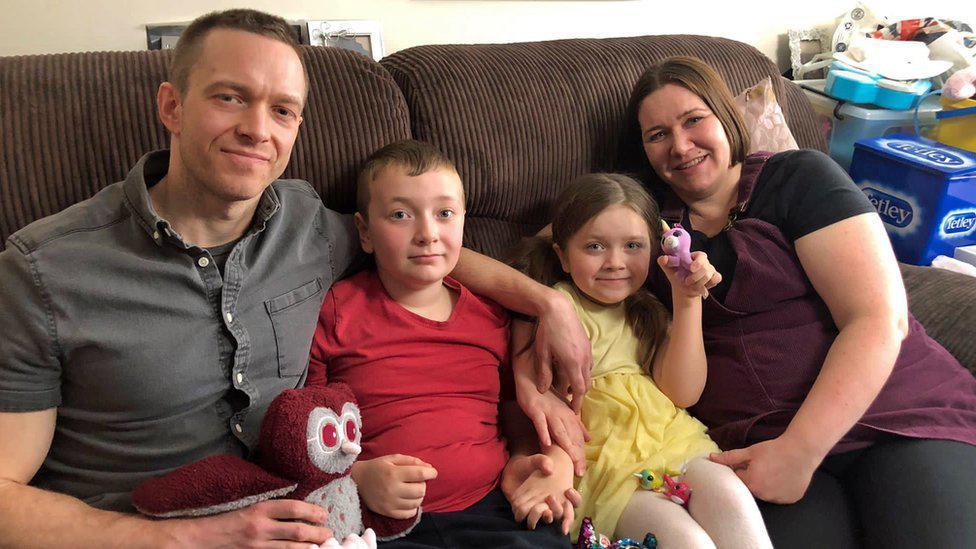Autistic boy writes to PM calling for more support

Nate (second left) says his parents have to "fight for everything, even a wheelchair for my sister"
At a glance
Nate Courtney, from south-west London, has written a letter to the prime minister telling him his parents feel "failed and forgotten"
The letter is part of the Let Parents be Parents campaign, which is calling for local authorities to be reminded of their legal duties to support children with disabilities
A survey by the Disabled Children's Partnership (DCP) found the majority of parent carers did not think their child had the correct level of government support
The government said its Improvement Plan would be "prioritising earlier intervention"
- Published
A nine-year-old boy has written to the prime minister to call for more support for families with children who have disabilities, saying his parents feel "forgotten".
Nate Courtney, who is autistic, told Rishi Sunak he felt sad because his parents had to "fight for everything".
His letter has been shared by the Let Us Learn Too group, a charity coalition raising awareness about issues faced by families during the cost-of-living crisis.
A government spokesperson said its Improvement Plan would be "prioritising earlier intervention and creating consistent high standards across the country".
In the letter, Nate, from south-west London, described his family's difficulties in getting support caring for him and his sister, who is also autistic and has a muscle disease which means she uses a wheelchair.
He wrote that his parents were "always going to lots of meetings, talking on the phone and writing letters on the computer".
"They have to fight for everything, even a wheelchair for my sister," he added.
"My parents feel failed and forgotten. Let our parents just be our parents so we can enjoy ourselves."
'Disproportionately affected'
The campaign, launched by Let Us Learn and the Disabled Children's Partnership (DCP) - a coalition of more than 100 charities - is calling on the prime minister to remind local authorities of their legal duty to disabled children.
A DCP survey of 2,200 families in England between October and November found that the majority of parent carers did not think their children who have disabilities had the correct level of support from social care, health services or in educational settings.
Children with disabilities and their families were "disproportionately affected" by issues including waiting times and staff shortages, the partnership said, adding that many were "likely to wait longer than adults" for equipment such as wheelchairs.
Stephen Kingdom, campaign manager for the partnership, said Nate's story "brings to life the shocking statistics", showing parents were "filling the gaps left by underfunding of official provision".
He continued: "The stress on families is relentless.
"We welcome some elements of the Department for Education's Improvement Plan, external but it doesn't go far enough to ensure children receive the support to which they are legally entitled."
A government spokesperson said its Improvement Plan would be "prioritising earlier intervention and creating consistent high standards across the country".
The spokesperson added: “It is vital that healthcare and education are working together properly from day one for people with additional needs, which is why steps are being taken to better join up the system and provide support more readily for children and young people with special educational needs and for their families.”